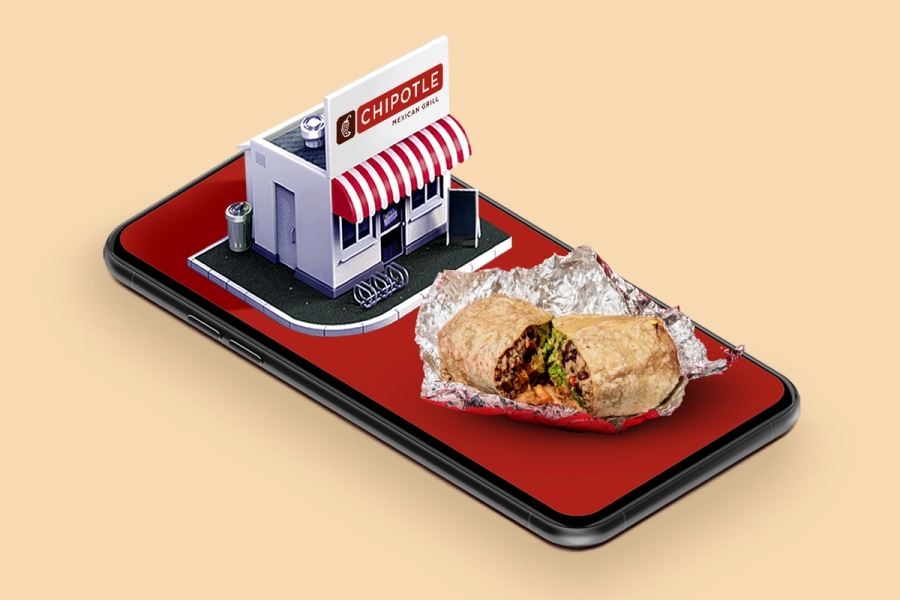Regenerative agriculture. Supply-chain solutions. Kitchen robotics.
They’re all technologies that could help fuel the future of restaurants—and they’re all areas of interest for Chipotle’s $50 million venture fund, Cultivate Next, which debuted in April after seven months of planning.
So far, Cultivate Next has only announced investments in two startups, but the team is looking at other companies and plans to announce investments on a rolling basis, Curt Garner, Chipotle’s CTO, told us.
Chipotle’s fund is interested in companies that align with its strategic priorities. So, while the company won’t necessarily be a customer of every startup it invests in, he said he “expects that there will be opportunities for us to partner with portfolio companies to test their solutions through our stage-gate process.”
The fast-casual chain’s 3,000+ locations are owned by the company itself, which also boasts a debt-free balance sheet, per Garner—something that gives the company “a lot of flexibility, when we find good ideas, to experiment, scale, and implement,” Garner told us, making it easier to fund a venture arm.
“Typical franchise organizations have multiple layers of ownership and buy-in that’s required,” Garner said. He added, “We have over a billion dollars in capital and self-fund all our growth through our operating income.”
In an emailed statement from spokesperson Kelly Delgado, Garner declined to provide target returns, size, or stage for its fund’s investments. The fund will “support startup companies with focus areas that support our aggressive growth plans and strategic priorities such as running great restaurants, amplifying technology and innovation, and expanding access and convenience to our real food,” he added.
Let the chips fall
Cultivate Next’s first cohort was composed of two startups: Meati Foods and Hyphen.
Meati, a Colorado-based food tech startup with nearly $280 million in funding to date, focuses on using fungi to create plant-based proteins. Hyphen, a San José, CA-based startup with $58 million in funding, has introduced a robotic makeline that’s installed underneath a restaurant counter to make pickup orders, alongside employees. Chipotle is not currently a customer of either company.
Keep up with the innovative tech transforming business
Tech Brew keeps business leaders up-to-date on the latest innovations, automation advances, policy shifts, and more, so they can make informed decisions about tech.
Chipotle began talking to both companies before the fund was publicly announced, according to Garner, and several hundred companies have reached out since the fund went live.
“We’ve been approached by a lot of companies that are doing some really fun and interesting things…initially approached along the lines of, ‘Hey, maybe you can be a customer of this platform or this experiment or this technology that we’re launching,’ and then [we] saw that growing over time into, ‘Hey, can you help partner with us?’” Garner said.
He added, “It was last summer, as we were going through our strategic planning process, we started talking about the opportunity of making that a bit more programmatic.”
The fund has an investment committee that meets once a week to make decisions subject to executive-leadership approval, and for now, at least it plans to stick with cohort companies for a “likely investment window of five years,” Garner said.
Ultimately, when it comes to emerging technologies, Garner said Chipotle is after a happy medium: Tech that makes the hospitality experience better while still preserving human connection. For instance, the company has been approached about doing fully autonomous restaurants and has declined, he said.
“We look at technology through the lens of ‘and,’ and try to think about ways that tools can enhance human experiences and human performance but not replace them,” Garner said.
“I don’t envision you going into a Chipotle, talking to a chatbot, and looking at a robotic arm making your bowl, where you can yell at it, ‘No, I wanted brown rice, not white rice.’ I think, in the hospitality business, that human-to-human connection is so vitally important,” he added.
Update: This piece has been updated to clarify the timeline of Cultivate Next's conversations with its initial portfolio companies.
